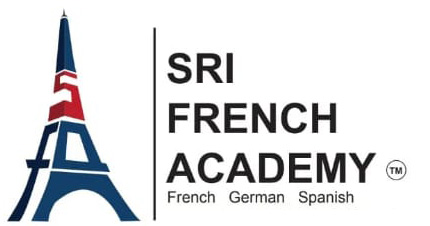FRENCH B2
COURSE DURATION
- 3 MONTHS (REGULAR)
- 2 MONTHS (FAST TRACK)
EACH CLASS DURATION
1.5 HOUR
DAYS PER WEEK
- 3 days a week (Regular)
- 5 days a week (Fast track)
TOTAL HOURS
- 40-45 HOURS ( live classes)
- 15-20 HOURS ( listening sessions)
ELIGIBILITY
B1 -FRENCH
COURSE FEE
- ₹ 26,000.00 (Regular)
(@ Rs. 400 only per class)
- ₹ 31,000.00 (Fast track)
(Rs 460 only per class)
Course & Duration
Listening (L)
- Understanding Extended Speech and Lectures: Comprehend extended speech, lectures, and complex arguments on both familiar and unfamiliar topics. Understanding complex audio materials, including interviews, lectures, and debates.
- Listening to Media and Films: Understand the main ideas and specific details in news programs, films, and documentaries.
- Following Complex Instructions: Follow detailed instructions and procedures in various contexts, such as workplace and academic settings.
- Listening to Discussions and Debates: Understand the points of view and arguments in discussions and debates, recognizing subtle nuances and implied meanings.
Speaking (S)
- Presenting Arguments and Opinions: Present clear, detailed descriptions and arguments on a wide range of topics, including abstract and complex issues. Debates and discussions on current events and social issues
- Role-playing exercises for various professional and academic scenarios
- Group projects and presentations on cultural and specialized topics
- Debating and Negotiating: Participate actively in discussions, debates, and negotiations, expressing and defending opinions with confidence.
- Describing Experiences and Events: Provide detailed accounts of personal experiences, events, and hypothetical situations.
- Engaging in Extended Conversations: Maintain extended conversations on various topics, managing turn-taking and responding appropriately to others.
- Using Idiomatic Expressions: Use idiomatic expressions and colloquialisms to sound more natural and fluent in conversation.
Reading (R)
- Understanding Complex Texts: Read and understand complex texts, including articles, essays, and reports on a wide range of topics.
- Analyzing Arguments and Opinions: Identify and analyze arguments, opinions, and viewpoints in texts, recognizing implicit meanings and biases.
- Reading for Detail: Comprehend detailed information and main ideas in both factual and fictional texts, including novels and academic articles.
- Interpreting Technical Texts: Understand technical texts related to specific fields of interest or study.
Writing (W)
- Writing Clear, Detailed Texts: Write clear, detailed texts on a variety of subjects, including essays, reports, and reviews.
- Expressing and Supporting Opinions: Articulate and support opinions and arguments in writing, using appropriate connectors and cohesive devices.
- Narrating and Describing: Write detailed narratives and descriptions of experiences, events, and hypothetical situations.
- Formal and Informal Writing: Differentiate between formal and informal writing styles, composing letters, emails, and messages for various purposes.
- Editing and Proofreading: Edit and proofread written texts for clarity, coherence, and accuracy, paying attention to style and register.
- Grammar Expansion:
- Mastery of complex verb tenses and moods, including passé simple (simple past), subjonctif présent (present subjunctive), and conditionnel présent (present conditional)
- Advanced use of relative pronouns, conjunctions, and adverbial phrases
- Indirect speech and reported speech
- Nuances of reflexive verbs and pronominal verbs
- Vocabulary Expansion:
- Extensive vocabulary related to specialized topics, such as politics, economics, science, and technology
- Use of idiomatic expressions, proverbs, and set phrases
- Phrases for nuanced expression of opinions, agreement, and disagreement
- Cultural Knowledge:
- In-depth exploration of French and Francophone cultures, including literature, cinema, music, and art
- Discussions on contemporary social, political, and cultural issues in Francophone countries

